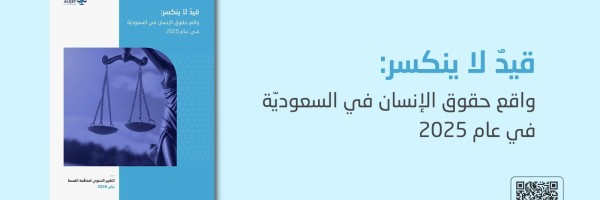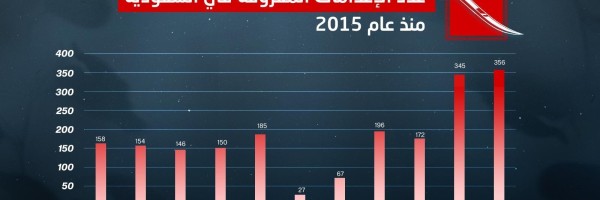ALQST is gravely concerned to learn that detained feminist and fitness trainer Manahel al-Otaibi has been wilfully exposed to physical and psychological abuse in Riyadh’s Malaz Prison, once again illustrating the Saudi authorities' callous disregard for the lives and wellbeing of prisoners of conscience. Al-Otaibi, detained in Malaz since November 2022, has been subjected to various forms of abuse from another inmate, including beatings, bites and death threats.
While these attacks have not been directly inflicted by officials, the prison authorities have made no effort to protect al-Otaibi. Their actions in fact go well beyond mere negligence because, when she notified prison officials, they prevented her from making a complaint and instead placed her in solitary confinement. On her release from solitary confinement, around 27 September, she was placed in a cell shared with drug addicts, making her vulnerable to further violence.
ALQST has observed a growing trend whereby the Saudi authorities place the lives of prisoners of conscience at risk through reckless, if not deliberate, negligence, including failure to protect them from other prisoners. The worst example we have seen to date was the apparently contrived murder in October 2021 of political reformer Musa al-Qarni, who was brutally killed in his prison cell by religious extremists, despite having repeatedly complained to the prison administration about the risks he faced.
Other recent examples include the transfer of Islamic scholar Ibrahim Mohammed Ha’il al-Yamani to a cell shared with extremists who had threatened several times to kill him; an unexplained attempt to kill human rights defender Khaled al-Omair; and an assault on human rights defender Mohammed al-Qahtani by a man with mental health issues.
ALQST has also learned that imprisoned women’s rights activist Salma al-Shehab has been placed alongside inmates transferred from a psychiatric hospital who experience violent episodes because of a lack of adequate medical care. She has appealed to the official Saudi Human Rights Commission for these inmates to be held separately and receive adequate treatment, but so far to no avail.
Manahel al-Otaibi and her sister Fouz – who fled Saudi Arabia – are facing trial before the Specialised Criminal Court on a number of charges related to their peaceful promotion of women’s rights, wearing “indecent” clothes, and tweeting under feminist hashtags. The first session of their trial, scheduled to take place on 26 July, was postponed without a new date being set.
Other peaceful activists have recently been given unprecedentedly long jail sentences, heightening concern for those still awaiting sentencing. In the past year alone, Saudi courts have convicted and passed long jail sentences on several women over peaceful rights activity on social media, including Nourah al-Qahtani (45 years in prison), Sukaynah al-Aithan (40 years), Fatima al-Shawarbi (30 years), Salma al-Shehab (27 years) and, most recently, 18-year-old secondary school student Manal al-Gafiri (18 years). This comes amid an intensified crackdown on social media activity in general.
ALQST’s Head of Monitoring and Advocacy Lina Alhathloul comments: “Al-Otaibi's appalling treatment in prison once again demonstrates that the authorities not only turn a blind eye towards life-threatening abuse of prisoners of conscience in Saudi jails, but actively facilitate it.”
ALQST urges the Saudi authorities to ensure the safety and welfare of al-Otaibi and all other prisoners of conscience, and to immediately and unconditionally release her and all others currently detained in the kingdom for the peaceful exercise of their fundamental freedoms.




